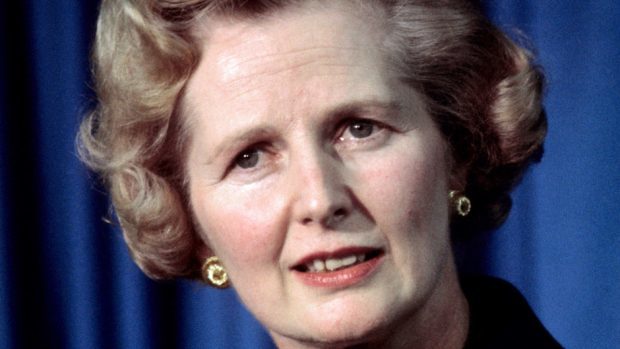Secret papers have revealed Margaret Thatcher resisted calls to end sewage sludge dumping in the North Sea because it was not based on “sound science”.
The prime minister was advised by Environment Secretary Chris Patten to commit to doing so by the end of 1998 at the “very latest”.
He warned the UK was “isolated” on the issue, which rose to prominence in the run-up to the March 1990 North Sea Conference in the Netherlands.
By then Britain was the only North Sea state that continued to dump sewage sludge and industrial waste at sea.
Moreover, during the previous decade, it had become known among Scandinavian countries as the “dirty man of Europe”.
Mr Patten argued an announcement must be made before, rather than after, the conference so the UK could take credit.
In letters, released by the National Archives today, he said: “On purely scientific grounds, the case has not been made out for banning dumping at sea and treating coastal discharges of sewage.
“But other countries when confronted with these issues have adopted a precautionary approach.
“We are now isolated … This leads me to question whether we can be sure that our policies are right.”
Mrs Thatcher voiced concerns after objections were raised by Trade and Industry Secretary Nicholas Ridley.
He said he could appreciate the risks of the UK “yet again unfairly being put in the dock” and the “political need to do as much as we can … to take the sting out of the current campaign against us”.
But he also stressed the importance of weighing the political case against the “political acceptability of incineration on land”.
This had been identified by Mr Patten as “the only realistic alternative” in most instances.
Mr Ridley also asked the prime minister to look again on the grounds switching methods would increase C02 emissions by 500,000 tonnes a year.
He said: “We would be giving up a practice which has not been shown to have any environmental disbenefit and committing ourselves to one which we know will add to the greenhouse problem.
“We would thus no longer be basing our policy on sound scientific advice but departing from it, yet again, for reasons of political expediency.”
Days before he was due to make his announcement, Mr Patten stressed the need for an “unqualified commitment”.
But he was told that Mrs Thatcher – originally a research chemist – was worried because: “Britain has always taken pride in basing its policies on sound science.”
She was also “reluctant” to accept that an increase of half a million tonnes of C02 was negligible.
The prime minister ultimately agreed, but on the condition the conference be told clearly about the need to obtain planning consent for incinerators.
Mr Patten was also instructed to press for an agreement that a scientific assessment be conducted comparing the total effects on the environment of different methods of disposal.
The conference committed to carrying this out before 1992.
In a note to the prime minister afterwards, Mr Patten wrote: “We will have a good basis for joint development of marine policy having got rid of a number of symbolic topics whose political significance overshadowed their contribution to North Sea pollution.
“We should now be able to concentrate on the real causes of that pollution – in particular the input of substances from the rivers of mainland Europe.”
In her reply, written by her principal private secretary, Mrs Thatcher said she hoped “every effort will now be made to turn the spotlight on the short-givings in the environmental records of other countries”.
